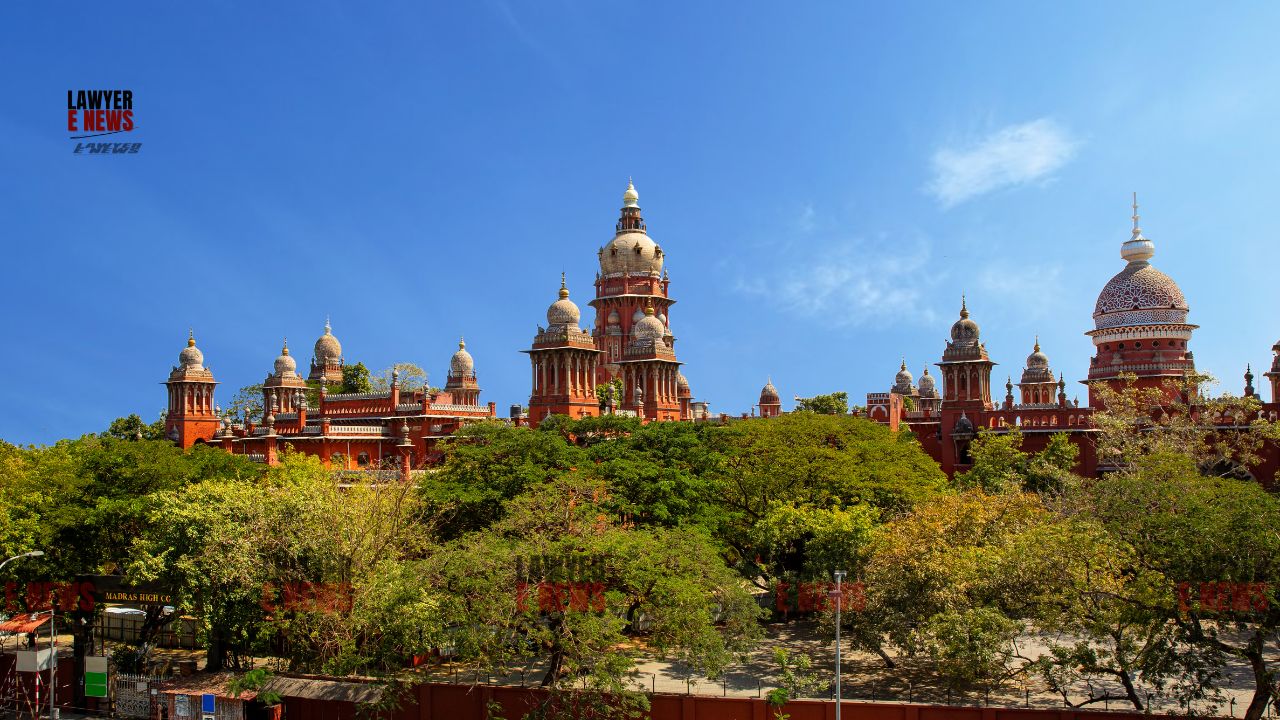-
by Admin
15 February 2026 5:35 AM



The Madurai Bench of the Madras High Court in Crl.R.C. No. 824 of 2022 set aside the conviction of Concord Exports and its proprietor under Section 138 of the Negotiable Instruments Act. The Court ruled that the cheque issued to Balu Agencies was a security instrument and not meant to discharge a legally enforceable debt. The conviction and sentence of two years rigorous imprisonment by the trial court were overturned, and the Court directed the accused to pay the admitted liability of Rs. 13,51,876/- with 6% interest.
The case arose from a business transaction between Concord Exports, owned by O.R.B. Vikraman, and Balu Agencies, represented by Chittibabu. For over six years, Balu Agencies supplied maize to Concord Exports. The dispute originated in 2013 when Concord Exports allegedly failed to pay Rs. 33,51,876/- for a maize supply. In response, Balu Agencies presented a cheque from Concord Exports, which was dishonored due to insufficient funds. A complaint was then filed under Section 138 of the Negotiable Instruments Act.
The legal issue in question was whether the cheque issued by Concord Exports represented a legally enforceable debt or was merely issued as a security. The petitioner contended that the cheque, issued on December 2, 2013, was handed over as a security for a future transaction and that no legally enforceable debt existed on that date. Additionally, the petitioner claimed that they suffered a loss due to the inferior quality of maize supplied by Balu Agencies, leading to a reduced liability of Rs. 13,51,876/-.
Justice K.K. Ramakrishnan observed that the mere issuance of a cheque does not automatically imply that it was intended to discharge an existing liability. Citing precedents from the Supreme Court, including Basalingappa v. Mudibasappa and Indus Airways (P) Ltd. v. Magnum Aviation (P) Ltd., the Court clarified that a cheque issued as a security does not create criminal liability under Section 138 unless it represents a debt enforceable at the time of its encashment.
The Court criticized the trial court’s failure to consider the defense documents submitted by Concord Exports, which suggested that the cheque was issued only as a security. It noted that both the trial court and the appellate court wrongly concluded that the absence of the petitioner's testimony constituted an admission of liability. However, the Court held that the petitioner had sufficiently raised a probable defense through documentary evidence and cross-examination, establishing that the cheque was indeed issued as security.
In its ruling, the Madras High Court acquitted Concord Exports of all charges but directed the petitioner to pay the admitted liability of Rs. 13,51,876/- with interest at 6% from February 21, 2014, acknowledging the petitioner’s business relationship with Balu Agencies.
The Madras High Court’s judgment in Concord Exports v. Balu Agencies underscores the principle that a cheque issued as security does not automatically create criminal liability under Section 138 of the NI Act. The Court's decision to acquit Concord Exports serves as a critical precedent for distinguishing between cheques issued for existing liabilities and those given as security.
Date of Decision: March 19, 2024
Concord Exports & Another v. Balu Agencies (Crl.R.C. No. 824 of 2022).
